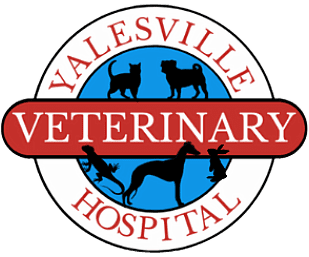Short White Worms in Dog Poop. What to Do?

Discovering short white worms in your dog’s poop can be alarming for any pet owner. It’s a common issue that can indicate a parasitic infection in your dog. This blog post will guide you through understanding what these worms are, why they’re a concern, and how Yalesville Veterinary Hospital can help ensure your pet stays healthy and happy.
What Are These Worms?
The short white worms you’re seeing in your dog’s feces are likely tapeworms or roundworms. These parasites are not only common but also potentially harmful to your dog’s health. Tapeworm segments typically look like small, flat white rice grains, while roundworms appear as spaghetti-like, curled entities.
How Did My Dog Get Them?
Dogs can contract these parasites through various means. Tapeworms are often acquired by ingesting infected fleas during grooming. On the other hand, roundworms can be contracted from eating contaminated soil or feces, or in some cases, transmitted from mother to puppy during pregnancy or nursing.
Health Risks and Symptoms
While some dogs may not show immediate signs of distress, common symptoms associated with parasitic infections include:
- Weight loss
- Bloated abdomen
- Vomiting
- Diarrhea
- General appearance of being unwell
If you notice these or any unusual signs in your dog’s behavior or health, it’s important to act swiftly.
Why Should I Be Concerned?
Apart from causing discomfort and potential nutritional deficiencies in dogs, these parasites can also pose health risks to humans, especially children. Ensuring your dog is parasite-free is crucial for the health of your entire household.
Diagnostic and Treatment Options at Yalesville Veterinary Hospital
At Yalesville Veterinary Hospital, we’re equipped to diagnose and treat parasitic infections with precision and care. Our experienced team uses fecal testing to confirm the presence of worms and to identify the specific type of parasite affecting your pet.
What Treatment Options Are Available?
The treatment typically involves administering dewormers that are effective against both tapeworms and roundworms. These medications are safe and can often resolve the infection quickly, with follow-up treatments ensuring that the infection is completely eradicated.
Preventing Future Infections
Keeping your dog free from parasites like tapeworms and roundworms is crucial for their health and the safety of your household. Here are several actionable steps you can take to minimize the risk of infection:
- Maintain Strict Flea Control: Since fleas are a common carrier of tapeworm eggs, controlling flea infestations is essential. Regular use of flea prevention treatments recommended by your vet can keep these pests at bay. Ensure you treat every pet in your home, as fleas can easily spread from one animal to another.
- Monitor Your Dog’s Environment: Prevent your dog from accessing areas where they might encounter contaminated soil or feces. This includes monitoring outdoor areas and ensuring your yard is clean. Discourage your dog from eating anything found on the ground during walks or in parks where other animals might have defecated.
- Practice Good Hygiene: Regularly wash your hands, and encourage children to do the same, especially after playing with pets or coming from outside. Cleaning up after your dog promptly and safely disposing of their feces can also prevent the spread of parasites.
- Regular Deworming: Adhering to a regular deworming schedule as prescribed by your veterinarian can prevent the growth and spread of parasites. Even indoor pets should be included, as they can also be at risk.
- Keep Your Home Clean: Regular cleaning of your home, including washing your dog’s bedding, toys, and any shared spaces, helps reduce the risk of parasitic infections. This cleanliness routine helps eliminate any lingering eggs or parasites that might be present.
Call Yalesville Veterinary Hospital Today
If you’ve noticed short white worms in your dog’s poop, don’t wait to seek professional advice. Call Yalesville Veterinary Hospital at (203) 265-1646 to schedule an appointment. Our team will provide the necessary treatments and advice on how to prevent future infections. Keeping your dog healthy helps ensure the wellbeing of your entire family.
